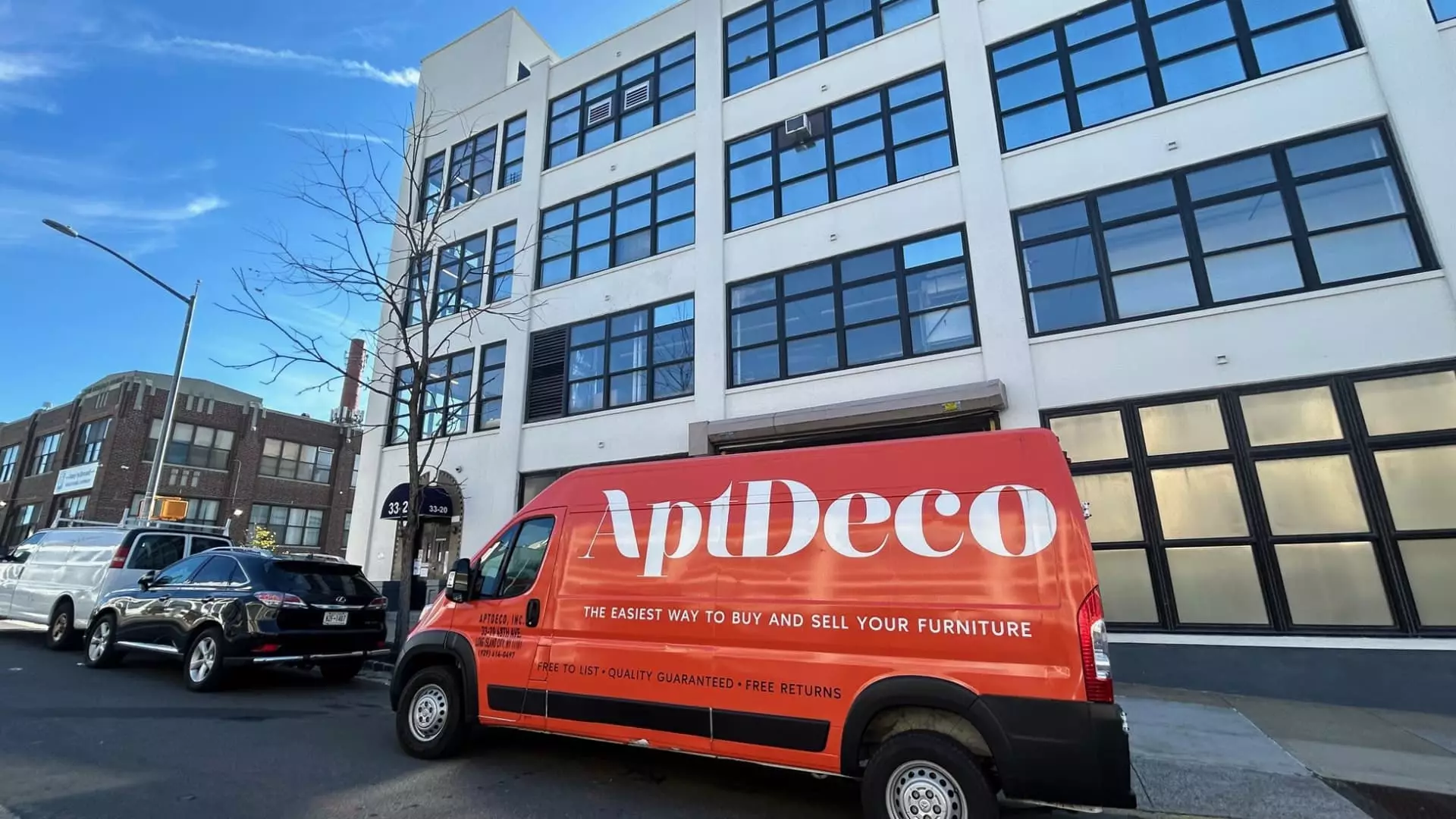The modern age has ushered in a greater awareness of environmental challenges, particularly concerning waste production. Among the most pressing issues is furniture waste, a significant byproduct of both consumer habits and corporate practices. The staggering statistic from the Environmental Protection Agency, which highlights that Americans discard approximately 12 million tons of furniture annually, underscores the enormity of this problem. Alarmingly, most of this discarded furniture is merely under 15 years old, indicating that a substantial amount is tossed away while still relatively new and usable.
Recycling furniture is fraught with obstacles that deter individuals and companies from participating actively in waste reduction. Unlike the far more streamlined processes offered for clothing through platforms like Poshmark, Depop, and ThredUp, the logistics surrounding furniture disposal are immensely more complex due to the physical dimensions and weight of the items. Websites such as Craigslist and Facebook Marketplace provide avenues for selling used furniture but place the burden of pickup and delivery squarely on the buyer and seller. This situation can not only turn into a logistical nightmare but also poses safety risks, as inviting strangers into one’s home can lead to precarious situations.
With the growth of the thrift economy, the furniture sector has been relatively slow in adapting to the digital age, thus leaving a significant gap in sustainable practices. The consequence of this systemic issue is that an enormous volume of furniture ends up in landfills, contributing to escalating emissions and wasted resources.
Addressing these inefficiencies, AptDeco has emerged as a revolutionary player on the furniture resale scene. As a New York-based online marketplace, AptDeco not only allows users to buy and sell second-hand furniture but takes the potential hassle out of logistics by offering pickup and delivery services for items sold through its platform. This innovation directly tackles the complexity of moving bulky goods while also extending the lifecycle of furniture, leading to reduced environmental impact.
Reham Fagiri, the founder and CEO of AptDeco, emphasizes the benefits of extending furniture’s lifecycle, stating that it inherently aids in lessening the environmental load. The model effectively decreases the need for new materials, thereby limiting deforestation and minimizing the broader supply chain footprint associated with manufacturing new furniture.
AptDeco’s innovative approach not only benefits individual customers but also serves larger furniture retailers facing substantial waste due to returned goods. The company collaborates with renowned brands like West Elm and Pottery Barn to resell their returned items swiftly—often before the returned products even reach a distribution center. This model reduces transportation emissions significantly and decreases the waste produced through traditional retail return processes.
AptDeco’s ability to leverage resale data to price items quickly often enables sales within a week. This efficiency effectively creates a streamlined system for both buyers and sellers and highlights a critical shift in how returned items are managed in the retail space.
Kathleen O’Brien, a satisfied AptDeco customer, embodies the growing consciousness surrounding sustainable living and the necessity to reduce one’s ecological footprint. Her remarks reflect the underlying ethos pushing consumers toward more sustainable choices, particularly when it comes to home furnishings.
While the benefits of buying second-hand items are clear—often offering up to a 50% discount—AptDeco’s service comes with costs, as they earn a commission based on various factors such as brand and condition. Nevertheless, the company’s operational model has garnered significant backing from substantial investors like Initialized Capital and Comcast Ventures, reflecting a growing confidence in the long-term viability of sustainable economic practices.
To date, AptDeco has successfully offset over 19 million pounds of carbon emissions—a figure comparable to removing approximately 6.5 million cars from the roads. This impressive milestone showcases the potential impact of businesses dedicated to addressing climate change through innovative logistics and market adaptations.
As the battle against furniture waste escalates, platforms like AptDeco demonstrate that a blend of community-driven solutions and innovative business models can pave the way for a more sustainable future. By rethinking how we manage furniture waste, both consumers and retailers can contribute to a circular economy that prioritizes environmental stewardship while also meeting consumer needs. In doing so, they not only help limit landfill overflow but actively participate in reshaping the furniture industry to become more resilient and sustainable for future generations.

